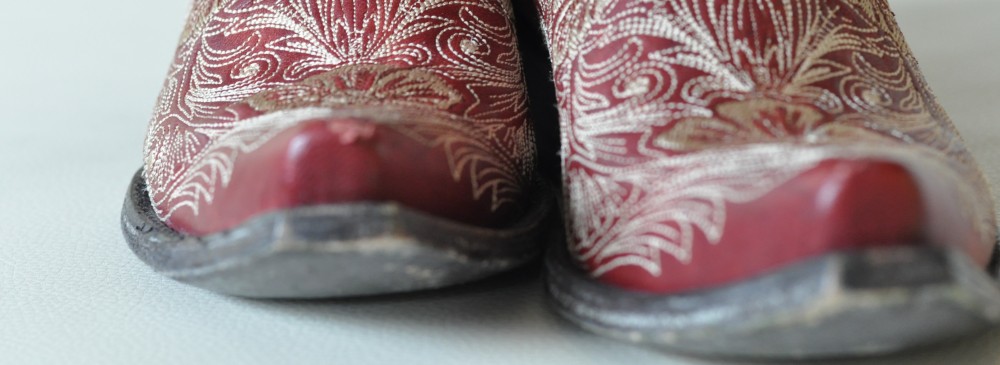That blank stare.
I never knew if she was happy, angry, sad, pissed off at me, or maybe not understanding my fast, accented English. Was it not okay that I dumped the groceries in the kitchen and then dashed out again? Should I not have asked her to clean the pantry if she has time? I just never knew what she was thinking.
Hard to get an emotional read on an already sensitive situation: employer-employee, woman to woman, have versus have-not.
I am sensitive to it because of how I grew up, with housekeepers and gardeners. Somebody to make breakfast and wash the dishes, unpack the groceries, do the laundry, water the garden, feed the dog, keep the bathrooms clean and the house tidy. That was how most white South Africans grew up. Somebody to babysit us when my parents went out, or for my little brother to stay with when my mom watched me and my sister at ballet recitals and drama festivals. Somebody, or two somebodies, to help. They made our beds, played with us. Because our parents worked and also because they didn’t. I know many Americans and Mexicans and Brits and Israelis and Brazilians who grew up the same way. With hired help.
It’s the way of the world in certain countries and in specific socio-economic communities – those that can and have and need to and want to employ those that will and have not. Employer-employee. It works like that.
Except of course, it’s not so simple. It’s not just employer-employee. It’s a system laden with undercurrents of guilt, with feelings of superiority and inferiority, of not wanting to offend or insult but still wanting the job done right, of wanting to do the job right but feeling unsure or insecure.
I’m sensitive to it because now I’m a part of it. Now I am navigating this complex emotionally fraught system. Equal parts expectation, responsibility, guilt and gratitude.
She came to work for us seven years ago, when my daughter was four months old. With barely any English at first, she quickly became indispensible to me. I hadn’t had consistent help before, and it was a relief to be able to leave this child asleep in her bed, and not in her car seat, while I drove a carpool. To go to Target unaccompanied. To have all the laundry washed, dried, folded and put away before noon, and by someone else. To come home to a house smelling of Pine Sol and orange floor cleaner. To have an extra pair of hands on deck when one was blowing bubbles in the bathtub and one was about to hurl herself down the stairs, while yet another was making a beeline for the dog food.
But if I spoke too quickly, if I told her not to take the baby to the park, if I asked her to stay late or leave early or do it a different way, she would look at me, with no expression in her face. “Shit,” I thought. “Is she mad at me? Did I say something wrong? Something offensive?” I hated to think that she felt silent or silenced, that she couldn’t tell me what she really felt or thought. Or that G-d forbid she didn’t love me all the time. That she wasn’t happy.
I was uncomfortable in this role, as employer of this woman – not much younger than me – who was taking care of my children and cleaning my house, putting away my underwear, hearing my arguments with my husband, throwing birthday parties in the park for my babies at her own expense. Birthday parties with piñatas and carefree fun and Spanish songs and laughter. The birthday parties they remember in living color.
This woman, who had left her parents and her seven brothers and sisters and her home in Guatemala at the age of 22, and walked across Mexico for eight days and nights in harrowing conditions until she somehow made her way to Oakland and to me. Mercifully unscathed on the outside, but what about the inside?
I had left my country and my family too. But that was the only similarity between us. I was uncomfortable with what I had and what she didn’t. Citizenship. Financial resources. Language. Her parents would travel hours to her brother’s house just to Skype with her – mine flew across time zones to visit me in the flesh. And I could go to South Africa, or Guatemala, or anywhere in the world whenever I wanted.
Did she begrudge me? Did I act spoilt? Ungrateful? Was that the blank stare?
After seven years of taking care of me, of loving my babies, chopping my vegetables, making my bed, speaking my language, spending time with my parents, her longing to go home was burning so strongly in her heart, I could feel it across the kitchen counter.
So she did.
Her return journey to me was one of unknown peril and fear and angst. Eight months of collect calls. Of tears and worry. She said she was fine. Treated well. They would let her in, she was sure of it. But I could hear the doubt in her voice. I could feel the regret in her heart. I wasn’t sure we would ever see her again.
Yesterday was her birthday. She turned 32. Her first day back at work. In my house.
“Are you okay?” I asked.
“Yes,” she said, her eyes blank.
“Really?” I pressed.
She continued folding one of the boys’ t-shirts. And with no expression in her face, or her voice, her dark eyes looked honestly into my green ones:
“I’m happy. This, your house, is my second house. My home.”

